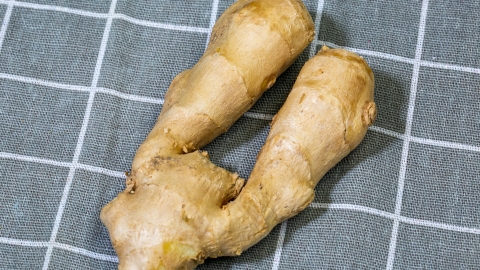Can I drink ginger water for a cold caused by exposure to cold?
Generally speaking, people with wind-cold common cold can drink ginger water. The detailed explanation is as follows:

Ginger has a warm nature and possesses functions such as relieving superficial syndromes and coldness, warming the middle jiao to stop vomiting, and warming the lungs to relieve coughing. When the body is affected by wind-cold pathogenic factors, symptoms such as marked aversion to cold, mild fever, sneezing, clear nasal discharge, headache, and production of clear, white phlegm may appear. Ginger water can promote sweating, through which the wind-cold pathogens trapped at the body surface can be expelled along with sweat, thus alleviating the symptoms of the common cold.
Wind-cold common cold is primarily caused by external contraction of wind-cold. Appropriate consumption of ginger water by patients with wind-cold common cold can accelerate blood circulation and promote perspiration, thereby relieving the illness. At the same time, ginger water can also warm the spleen and stomach, enhance the function of transformation and transportation of the spleen and stomach, help strengthen the body's vital energy (zheng qi), and sufficient vital energy is more conducive to resisting pathogenic factors.
Although ginger water can alleviate symptoms of wind-cold common cold to some extent, if the symptoms are severe, such as persistent high fever and severe coughing, timely medical treatment should be sought to avoid delaying the illness. Patients with wind-heat common cold should not drink ginger water, because wind-heat common cold is caused by external contraction of wind-heat pathogenic factors and its main symptoms include marked fever, headache, sore throat, yellow nasal discharge, and production of thick yellow phlegm.







